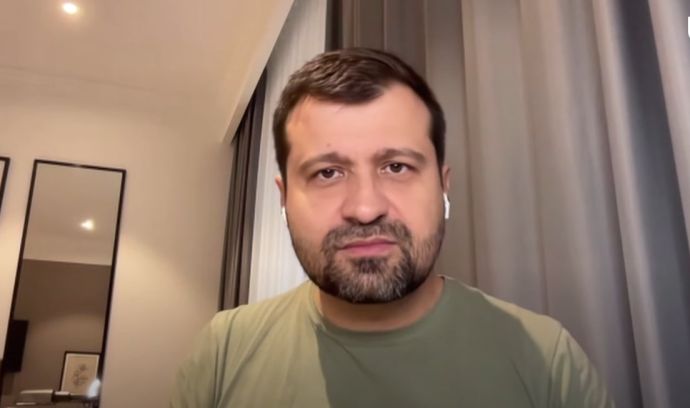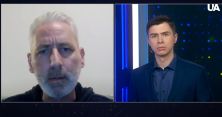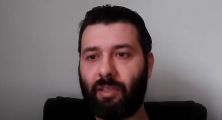What is it with those international organizations that were created as a International Organisations That Should Act – and are not acting but expressing deep concerns amidst a crime being perpetrated or a sincere condolences after – are they weak or laking will to act?
We talk with Sergiy Sumlenny, Eastern Europe politics expert, Founder of The European Resilience Initiative Center.
— Tell us more about the European Resilience Initiative Center. What is it and what do you do?
— Well, we are a Berlin-based think tank, founded in the early months of Russia’s full-scale invasion of Ukraine. Initially, our goal was to convince the German political elite to send weapons. As you may remember, Germany was only prepared to send helmets and not lethal weapons to Ukraine. After significant lobbying for Leopard tanks, HIMARS, and PzH 2000 howitzers, the weapons finally made their way to Ukraine.
However, we soon realized that beyond weapons, Ukraine needed other support—from drones to power stations, medical equipment, and communication devices. Many German citizens were frustrated with the government’s actions, or rather inaction, and were eager to help Ukraine. They felt betrayed by their own government and wanted to express their frustration by donating to help Ukraine directly.
We reached out to them and said, “We have connections in Ukraine and can help you help Ukraine.” That’s how we began working together.
— It sounds like you’re doing very well. Recently, you mentioned sending one or two trucks to Ukraine’s eastern frontline. That’s a significant amount of aid and money, isn’t it?
— Yes, it’s always amazing to see how willing German citizens are to donate. We’re talking about ordinary people, with an average donation of about 65 euros, though some donate thousands. It’s always a pleasure to witness, and I often tell Ukrainians that Germans are not represented solely by our chancellor or the Social Democratic Party. Many stand by Ukraine.
For example, in our last donation campaign, we raised 200,000 euros in just 24 hours. That was a surprise for me as well. Now we need to buy and deliver the equipment, but it’s heartening to see how generous people are and how committed they are to Ukraine.
— Next question—about the Ramstein summit. It has been postponed, but what are your expectations for this summit?
— I always hope for the maximum outcome, even though I know it won’t be fully achieved. Ideally, participating countries would give Ukraine as much as they can right now.
— Do European leaders want to put the war on hold soon? Is there a way to do so that aligns with Ukraine’s interests?
— This is one of the biggest challenges in the military cooperation between Ukraine and the West.
Ukraine’s goal is to restore control over its territory—not just for the land, but to save the people living there from Russian occupation. Russia needs to be prevented from attacking Ukraine again.
However, for many in the West, the desired outcome is simply for the war to stop, for the fighting to end. But for Ukraine, that’s not enough. A mere cessation of fighting would only invite Putin to resume the conflict in a few years, if not sooner.
Ukraine needs to convince its Western partners that defeating Russia is also in their best interest. This challenge lies at the heart of the lack of sufficient military support for Ukraine. Many Western countries do not prioritize Russia’s military defeat.
— If the war were put on hold, would Russia just use the time to rearm? Would the West help Ukraine rearm during a ceasefire, or would international institutions return to their usual ineffective responses?
— Even if both sides rearm, Ukraine’s military capacity is much lower than Russia’s. Over time, the imbalance in production will become dramatic.
During a ceasefire, Ukraine wouldn’t be allowed to strike deep into Russian territory—such as oil refineries or transport hubs—while Russia would continue sabotaging Ukraine with cyberattacks, bribes, and hybrid warfare. This would allow Russia to accumulate more resources for a future war while continuing its sabotage efforts. In this scenario, Ukraine’s hands would not just be tied—they’d be cut off entirely.










